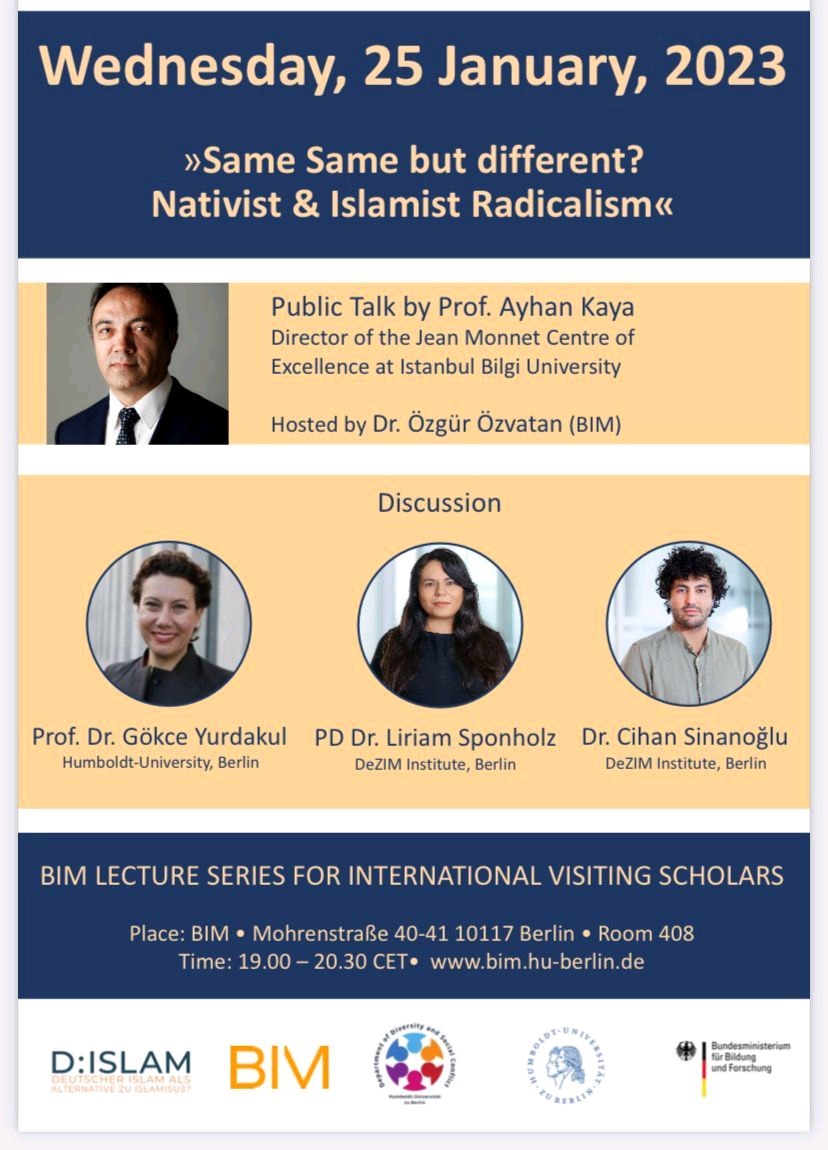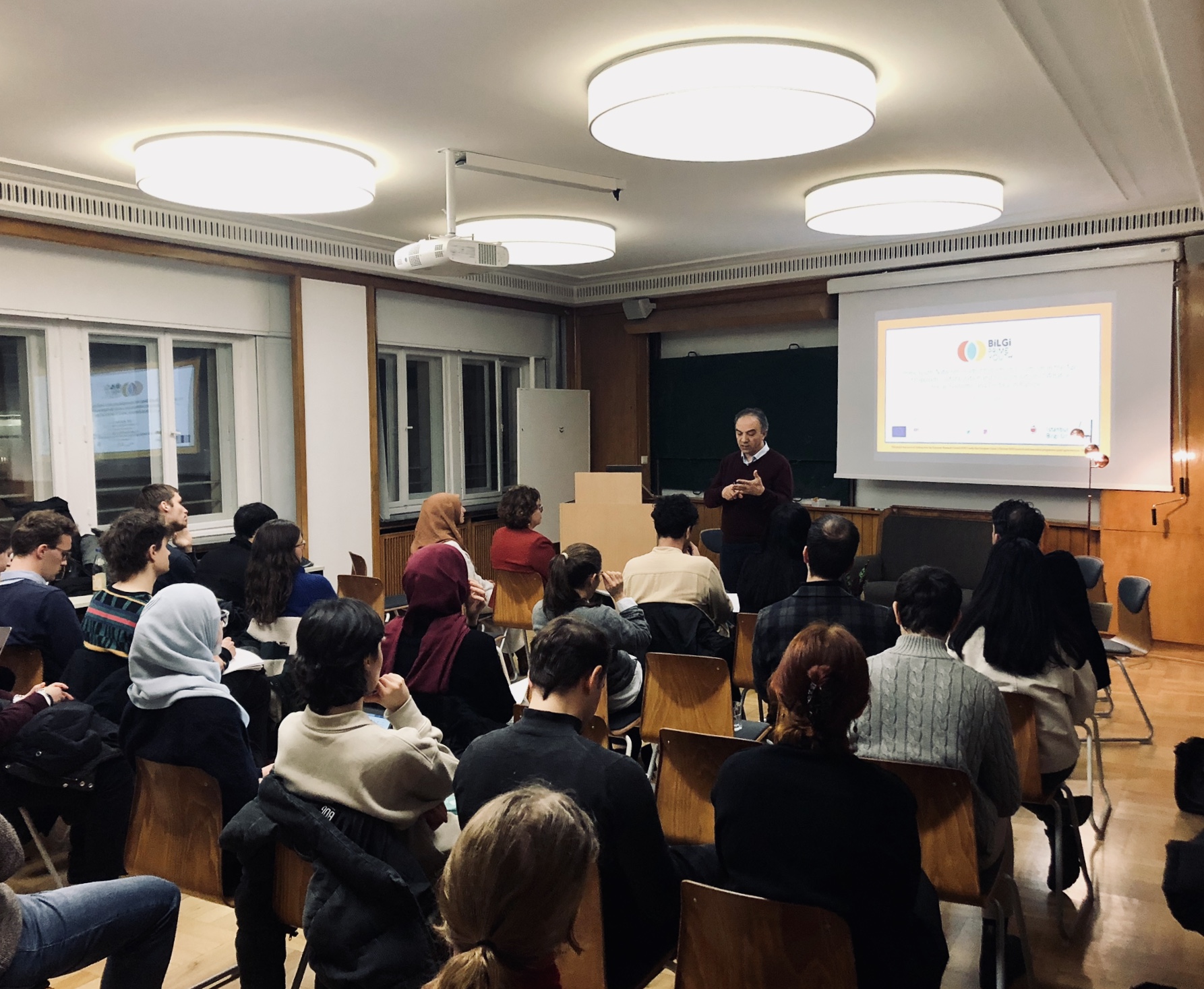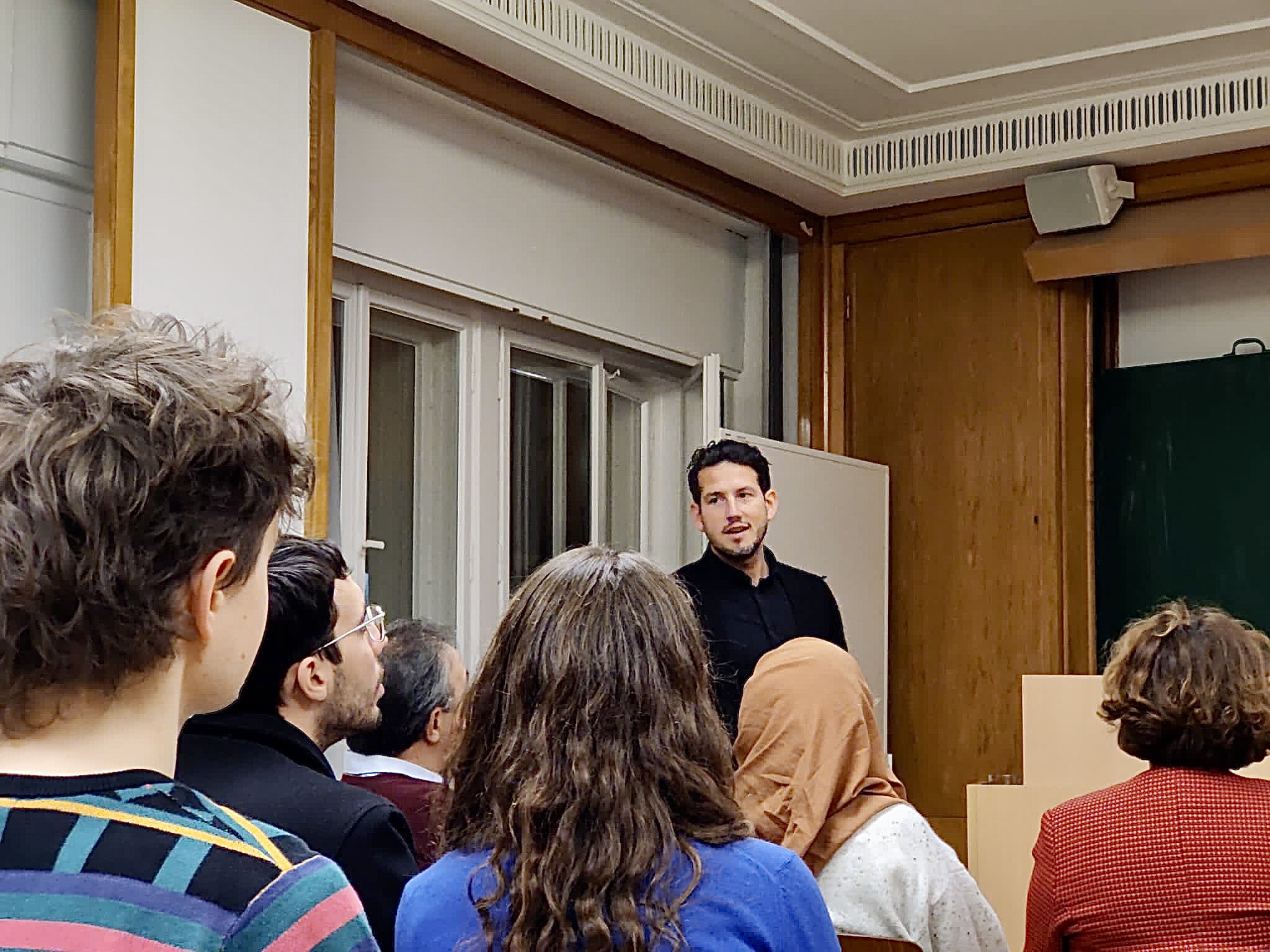
Ayhan Kaya visited Humboldt University to discuss the co-radicalization in Europe
In the event organized by the Berlin Institute for Empirical Integration and Migration Research (BIM) and the D:ISLAM project, Professor Kaya discussed the current processes of co-radicalization in Europe. The other participants of the organization were the host member Dr Özgür Özvatan (Berlin Humboldt University), the panelists Prof. Gökçe Yurdakul (Berlin Humboldt University), PD Dr Liriam Sponholz (The German Center for Integration and Migration Research, DeZIM), and Dr Cihan Sinanoğlu (DeZIM).
Prof. Kaya has shared with the audience some of the findings of the ERC research and his thoughts about the similarities between nativist-populist youth and essentialist Muslim youth in Europe. Following his speech, there was a panel discussion with the participation of Prof Gökçe Yurdakul (Berlin Humboldt University), Dr Liriam Sponholz (DeZIM), and Dr Cihan Sinanoğlu (DeZIM). The panel was moderated by Dr Özgür Özvatan (Berlin Humboldt University). Criticizing the neoliberal forms of governmentality that are often based on civilizational rhetoric compartmentalizing what is social into religious and ethno-cultural zones, Prof. Kaya underlined the socio-economic, political, and psychological similarities between these youth groups who have been so far researched by social science researchers in two separate clusters. Referring to the first-hand testimonies of young European Muslims living in metropolitan cities (Berlin, Cologne, Paris, Amsterdam, Brussels) and young European nativists living in non-metropolitan towns (Dresden, Aalst, Ghent, Rotterdam, Lyon), Prof. Kaya explained the root causes of their processes of radicalization, alienation, and discontent that lead to a distrust in mainstream politics and political parties, essentialization of ethno-culturalist-nationalist-nativist and/or religious identities, and appeal to the past, heritage, and myths that flatten the difficulties of the present in the age of populism.
Panelists made their remarks about the talk and raised questions to Prof. Kaya. While Prof. Yurdakul raised issues of gender and the role of the state in radicalization processes, Dr Sponholz underlined the prevalence of Islamophobic discourse since September 11, 2001. Dr Sinanoğlu asked where racism stands in all these discussions. There were also some questions asked by the audience, mostly PhD students and post-doc researchers at Humboldt University. Prof. Kaya stated that deradicalization works should be initiated more by the NGOs rather than the state actors because the neo-liberal state often operates as a source of radicalization among both groups. He also stated that there are many terms that should be discussed together with racism, such as discrimination, anti-Muslim racism, new racism, cultural racism, and nativism (soft racism). All these terms refer to different technics of governmentality of the neo-liberal state that either polarises or divides the society.
Prof. Kaya finally talked about the need to mediate between these co-radicalizing youth groups by bringing them together in third spaces where they can communicate with each other and see that it is not cultural, religious and ethnic differences which set them apart but rather the ways in which the neo-liberal state actors, right-wing populist political parties, and religious-based diaspora politics of migrant-sending countries exploit the socio-economic and political cleavages.












